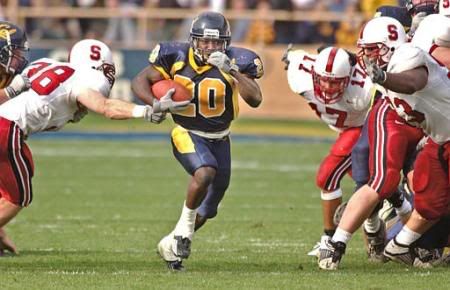You know, Temple probably wishes it could get rid of its last two games. Just wipe them off the books, call a do-over, try again some other time when conditions are more favorable.
Of course, Temple lost its last two games 62-0. Not two games that added up to 62-0; both games had a final score of 62-0, and Temple didn’t win either of them. I bet if she could, Ann Weaver Hart would change the recorded outcome of Temple’s last two games (they lost their first game of the season to Buffalo, 9-3 in overtime. That’s not so bad in comparison).
University of Oklahoma President David L. Boren thinks that the Oklahoma loss on Saturday shouldn’t count, either.
Boren sent a letter to the Pac-10 complaining about the outcome of the Oklahoma-Oregon game outlining five complains. The fourth was,
The Big 12 should request that the game should not go into the record books as a win or loss by either team in light of the level of officiating mistakes.
Of course, the Sooners lost because of two questionable calls by the officiating crew, and the Owls lost because they were completely outplayed.
I understand that Boren and Coach Bob Stoops are upset that the outcome of the game hinged on a referee’s call. This happened to them last year against Texas Tech, and they lost that game, too. I understand them wanting to see some changes in the replay system — it turns out, the guy in the booth didn’t get to see all the angles everyone else who was watching the game got to see, so clearly there are some problems.
But I haven't seen anything -— in video of the play, shown endlessly on TV stations across America on Saturday and posted on hundreds of websites, in photos of the event, or in comments by players — that provides indisputable evidence to overturn the call(s) made on the field.
1) Did an Oregon player touch the ball before it had gone 10 yards? The footage shown repeatedly on ESPN was from approximately the 40-42 yard line, and so required a viewer to rotate the image in their head to see whether the ball had reached the 45-yard line. It probably had not, when I rotate the image in my head, but the video is not indisputable precisely because it requires this interpretation.
2) Did Oregon actually recover the ball? When the official blew the whistle, the ball was being held by an Oregon player who was under an Oklahoma player. Whether the Oregon player had possession or not, the whistle had blown, and so the ball was dead when #23 for Oklahoma recovered. This play is not reviewable. My opinion is that the whistle was blown too soon, but that’s just an opinion.
And regardless of whether the call(s) were blown, Boren doesn’t seem to understand a fundamental point about sports: there is a winner and there is a loser, and the participants agree beforehand that this is how it will be. You don’t get to have a do-over if the game doesn’t happen the way you wanted it to. (Let’s erase the Cal-Tennessee game from the books, because Squid — what PhantomBear calls SydQuan Thompson — wasn’t quite ready for DI play, so the plays he gave up shouldn’t really count.)
Stanford is still upset about the 1982 Big Game, Georgia claims Georgia Tech used ringers in their 1943 and 1944 games and those wins should be forfeit, and depending on who’s counting, the Florida-Georgia, LSU-Tulane, Clemson-South Carolina, Cornell-Pennsylvania, and Washington-Washington State rivalries are also disputed.
Of course, the NCAA doesn’t believe Georgia, and gives Georgia Tech those wins, and the disputed games for the other series’ are also officially wins or losses for someone. This isn’t the first time a game has had an outcome that isn’t acceptable to the loser. It won’t be the last.
But what message does it send to the players — and fans — of a team when the University president demands that a game, which he had previously agreed to have on record as played by his team, shouldn’t be counted just because his team lost? If Oklahoma had won despite those controversial calls, Boren probably wouldn’t have minded.
And he almost certainly wouldn’t have done what Cornell did, according to Jake Curtis.
The same sort of thing happened in 1940, when Dartmouth won its 18th straight game by scoring on the game's final play for a 7-3 win over Cornell. Cornell scored what appeared to be the winning touchdown on the final play for a 7-3 victory. But films the next day revealed that the winning play had occurred on fifth down because of an officiating error, and Cornell subsequently forfeited the game to Dartmouth.
We can all agree that Cornell made the right decision. And if Oregon wanted to, they could make that decision as well — although unlike the Cornell-Dartmouth case (or the 1991 Colorado-Missouri case), the call is not indisputable. But it isn’t Boren’s decision, and he’s sending the wrong message by even suggesting it.

